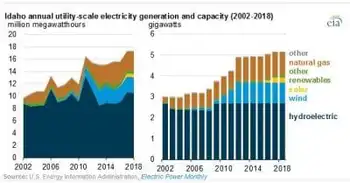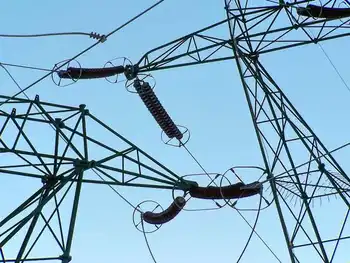California utility pressing for Arizona link
By Arizona Daily Star
NFPA 70b Training - Electrical Maintenance
Our customized live online or in‑person group training can be delivered to your staff at your location.

- Live Online
- 12 hours Instructor-led
- Group Training Available
The 230-mile, high-voltage line would make it easier for Southern California Edison, a utility serving most of Southern California, to import electricity available from natural gas-fueled generating plants in Arizona.
However, the Arizona Corporation Commission rejected the project on May 30, saying its environmental features and potential economic benefits were one-sided in favor of California at Arizona's expense.
Since then, Edison has unsuccessfully asked the commission to reconsider its denial and then filed a lawsuit that contends, among other things, that the commission's rejection of the project illegally interferes with interstate commerce.
Edison and the Arizona commission recently agreed to put the lawsuit on hold until next March while the utility considers unspecified alternatives, though one Arizona commissioner told The Associated Press in an interview that he wasn't impressed by what he'd heard so far.
Looming in the background is the possibility that Edison could try to circumvent the Arizona regulators' denial by seeking federal approval of the project as part of a critical energy corridor.
The continued wrangling over the proposed power line comes as California utilities strain the meet their customers' demand for electricity, a situation aggravated last week by high temperatures.
California's electricity grid manager declared a minor power emergency as the state's operating energy reserves dipped below 7 percent, a step that triggered conservation efforts by state agencies and a call for residents to conserve power use during hot afternoon hours.
Known as Devers-Palo Verde No. 2, the line would cross the desert of Southwestern Arizona and southeastern California, largely paralleling an existing line and linking a power switching yard 40 miles from Phoenix with a substation 10 miles from Palm Springs.
Edison spokesman Paul Klein said the legal hold put on the lawsuit gives Edison time to "pursue other options" that he declined to discuss.
However, Corporation Commission member Bill Mundell said Edison officials have suggested adding an interconnection point somewhere along the line so that it would be more helpful to Arizona's use of the Western power grid.
"That was the only one of substance that they mentioned," Mundell said. "I'll certainly listen to their proposal with an open mind but there needs to be additional benefits."
Mundell, who during the May 30 meeting said he didn't want Arizona to be "an energy farm for California," contends California hasn't done enough to build new plants to meet the energy needs of itself and the region.
Mundell and other Arizona commissioners contend building the line would mean lower electricity prices for California utility customers but higher ones for Arizonans.
An Aug. 14 letter signed by all five Arizona commissioners to members of the state's congressional delegation says the U.S. Department of Energy's expected designation of a high-priority electricity corridor in Arizona, California and Nevada "certainly" will lead to Edison's asking federal officials to authorize the line.
"Our worst nightmare has come true," Mundell said, referring to the Arizona commission's earlier concerns about how the Energy Policy Act of 2005 could be implemented.
Klein, the Edison spokesman, declined to discuss whether the company intends to seek federal authorization for the line.
"At this point we're just looking at all of our options," he said.











